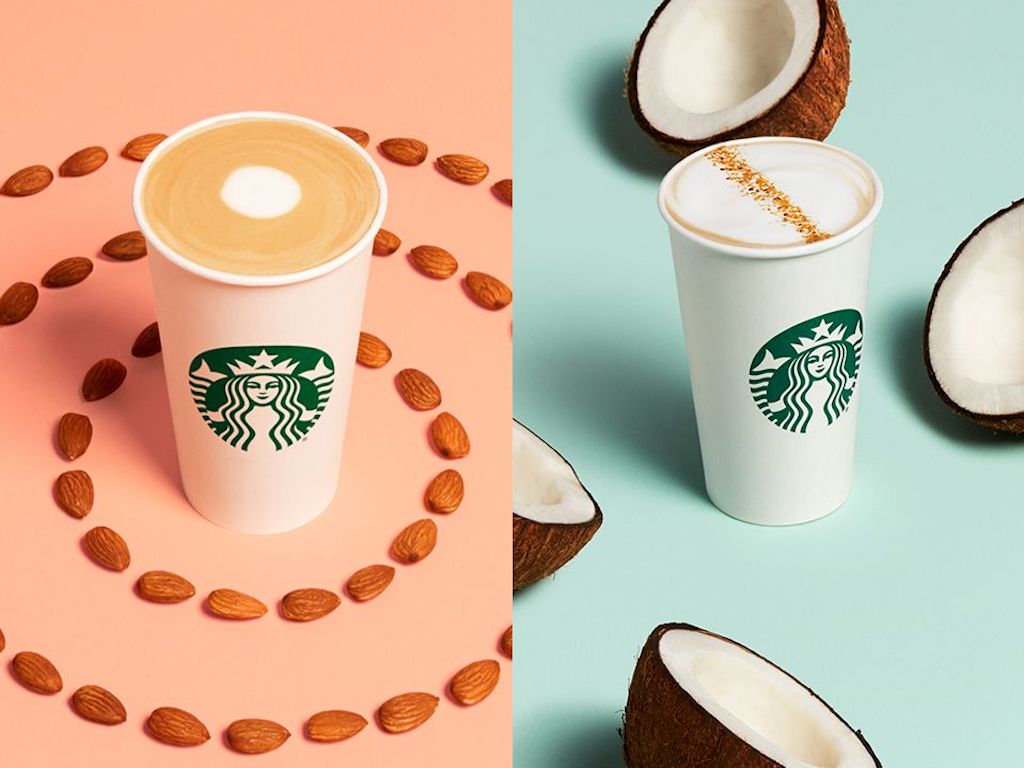3 Mins Read
Following Starbucks’ highly publicised company-wide pledge to become more eco-friendly this year, the global coffee giant is now hoping to be able to remove the additional fee for drinks that use plant-based milks shortly. Starbucks’ latest announcement reflects the pressure the food industry is feeling from its customers in recent years, especially from the growing numbers choosing to go dairy-free and vegan for environmental and health reasons.
According to VegNews, the chief operating officer of Starbucks Roz Brewer said that the company is now monitoring the market to hopefully make plant-based milks cost the same as the regular dairy options on its menu. In addition to soon removing the vegan milk tax, Brewer also revealed that the chain plans to roll out more vegan food choices across its locations.
“We’ll continue to innovate on plant-based alternatives and beverages. We expect the costs to come down as the supply chain for plant-based options matures, and we will pass this onto our customers,” she said.
Read: 10 stats that prove plant-based is the future of food
The news follows Starbucks’ statement earlier this year announcing that they have plans to become “resource positive” by storing more carbon dioxide than they emit, reducing waste and eliminating water wastage. Speaking about the new plan in January, the chain’s CEO Kevin Johnson said that a core part of the initiative will be to “push customers to choose milk made from almond, coconuts, soy or oats, whose production is environmentally friendlier than dairy.”
Dairy products account for a significant amount of carbon dioxide emissions that drive the climate crisis. According to global non-profit GRAIN, just 10 of the world’s largest dairy producers are responsible for enough carbon emissions to match half of France’s total output. Starbucks says that their use of dairy products accounts for over a fifth of its total greenhouse gas emissions and a seventh of their water waste.
Starbucks has also committed to reducing cream, whipped cream and dairy-based milks in their extensive drinks menus in order to cater to their growing base of non-dairy or vegan customers. In particular, younger customers tend to be more aware of the environmental impact of their consumption habits and are increasingly turning to plant-based dairy alternatives and meat-free meals to lessen their carbon footprint – a trend that is taking a toll on big dairy.
Read: Beef & dairy industries to collapse by 2030, says new report
Earlier in January, Borden Dairy became the second major cow’s milk producer in the United States to file for bankruptcy, citing “market challenges” driven by the current dairy-free trend. New Zealand’s Fonterra, the biggest dairy exporter in the world, has reported its second consecutive year of losses. Meanwhile, the sales of plant-based milks such as oat milk has risen sharply by a whopping 636% between 2018 and 2019.
Given the significant position Starbucks holds in the food service industry, it is likely that more brands will follow suit to remove the vegan milk tax. In addition to bringing about positive environmental changes, it will improve the availability of healthier non-dairy options for consumers, particularly in Asia where nearly 90% of the population is considered lactose intolerant.
Wondering which plant-based milk is the most eco-friendly? Read our Food Footprint Explainer Series about the impact of all the different types of vegan milks here.
Lead image courtesy of Starbucks.




